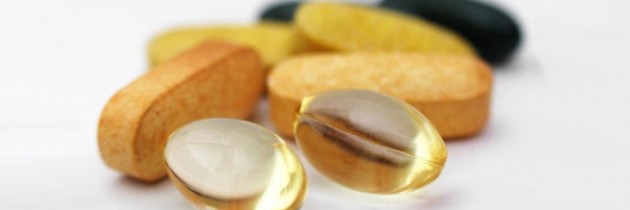Why You Should NOT Stop Taking Your Multivitamin
Have you seen the recent study out there that essentially shouted out multivitamin use is worthless? I am here to report that, yet again, we have another flawed study. Here is a list of flaws found courtesy of the Life Extension Research Foundation:
This study flies in the face of logic.
Diet is critical to optimal health. Foods such as wheat and rice (that are typically consumed in excess), create nutritional deficiencies when refined or processed from whole wheat into white wheat flour, this wheat loses 75% of its B vitamins, minerals and fiber. The same scenario with rice, for example, it too loses most of its healthful nutrients when polished from fiber rich brown rice to white rice. Even the soil that these and other plant-derived foods grow in is often nutrient-depleted.
It isn’t just diet or nutrient-depleted soil alone that is responsible for nutrient deficiencies. Other factors include the following:
- Alcohol: depletes B vitamins, vitamin C, most minerals, and antioxidants
- Allergies and infections: deplete vitamins A and C and zinc, among other nutrients.
- Exposure to air pollutants and other toxins: depletes antioxidants.
- Smoking: depletes vitamin C and antioxidants.
- Stress: depletes all nutrients, especially B vitamins and vitamin C.
We can all benefit our health and longevity by taking supplements. Supplementation protects us against deficiency, illness and premature death. Supplements help to extend life span with optimal health by providing protection from free radicals that harm our cells, supplements help speed repair and regeneration of our cells as well.
The required daily allowance (RDA) mandate of 30 IUs, which is not only outdated (dosage and lacking the critical Gamma E) but in and of itself challenging to get simply through nutrition alone – that’s just 30 IUs! The optimal daily allowance (ODA) for vitamin E that equates to optimal health is at least 400 IUs!
An example of how challenging it can be to get your optimal dosage of nutrients, consider sunflower seeds: sunflower seeds have more vitamin E than any other food. To get 400 IU of the nutrient, which is the amount provided by a typical multivitamin or a vitamin E capsule, you’d have to eat 1½ pounds of seeds every day.
Here is a quote from a reader: “I was very ill after several surgeries in the late 90’s and really felt like I wouldn’t make it. Somehow I connected with a couple that started me on a healing path and got me into vitamins and supplements. I dumped all the pharmaceuticals/prescribed drugs down the toilet and started taking lots of vitamins and supplements. Doing so literally saved my life and brought me back to health and vitality”
In looking at supplements, ensure you are taking a high quality product and choose one free of iron and copper. Also, beware of excess iron and copper in your supplement as they both can cause damage to the brain and excess iron can cause oxidative damage resulting in diseases such as cirrhosis, liver cancer, diabetes, Alzheimer’s disease and more.
My basic recommendation is to add a high quality multivitamin, vitamin D3, chelated magnesium and a purified omega 3 supplement such as fish oil or krill oil.
Keep taking your multivitamin and know that you are bridging the gap to optimal health.
To Your Health,
~Lori
©2016 DLS HealthWorks, LLC. Lori Shemek, PhD health expert and weight loss expert. Author of How To Fight FATflammation! and the best-selling author of ‘Fire-Up Your Fat Burn!’





